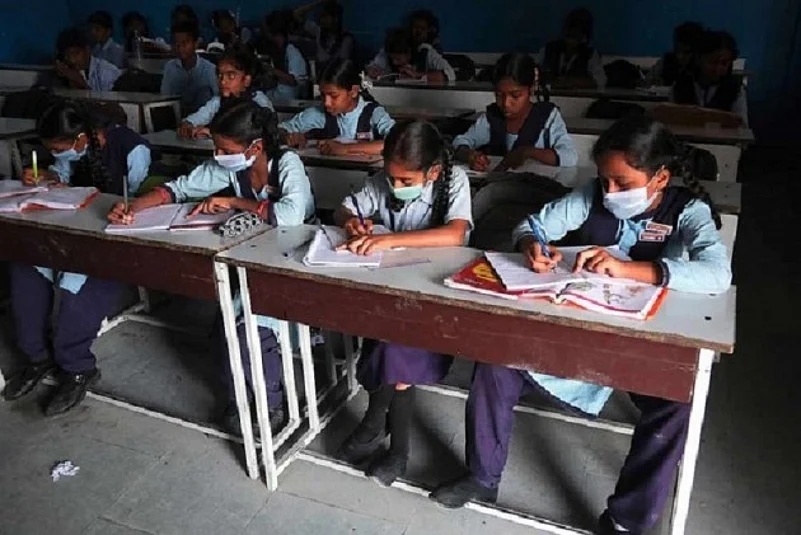Schools across the country are slowly reopening with the latest SOP from the Ministry of Health and Family Welfare, Government of India allowing partial reopening of schools from 21st September where students from class 9 to 12 can voluntarily clarify their doubts and seek guidance from their teachers. While certain states and cities have allowed for the reopening of schools, parents as well as schools will continue to be concerned over how they can get back to the regular regimen of activities in view of the ongoing pandemic situation. The current situation has also led to several students and educational institutes exploring the boon of e-learning as well as its bane. Once the ‘new normal’ sets in, what is the middle ground that educators as well as learners can settle upon?
Advertisement
E-learning as a solution?
The first major concern that comes to everyone’s mind is health. While the pandemic is ongoing, it is a huge concern for most to establish and follow social distancing norms once schools begin to function. While e-learning definitely helps continue the education curricula, its bane lies in the toll it can take on one’s physical and mental health.
The concerns are amplified even further, as a recent survey by the National Council for Education Research and Training (NCERT) found out that poor internet connectivity, disruption in the supply of electricity, and non-availability of devices such as laptops and mobile phones, are among the major hindrances hampering online learning for students. Thus, the right balance between online as well as traditional learning needs to be found by the policy makers as well as by private institutes. One way to bring this balance is by planning budgets that can provide underprivileged students, as well as parents, the necessary infrastructure and support in order to gain access to e-learning solutions.
Advertisement
Enhancing the student-teacher bond
With students as well as teachers only being able to interact with each other virtually, it becomes crucial to maintain the bond between them during these stressful times. When schools were first shut temporarily in March as a precautionary measure, most students and parents saw this as an extension of the summer holidays for them. But soon that bubble burst as the nationwide lockdown was extended. For teachers, the challenge is to maintain the unwavering attention of a 7-12-year-old to the screen. With screen time increasing this also took a toll on the physical and mental health of students, as well as teachers.
Educational institutes therefore need to strike a balance between synchronous and asynchronous learning while imparting online education. Interactive activities such as gaming and competitive question banks that enable participatory behaviour from students are some of the ways to strengthen the student-teacher bond.
Imparting Social-Emotional Skills
The perils of virtual interactions also include the lack of social-emotional skills that can be developed in a traditional educational setup. As most students across the country are socially isolated from their friends, relatives and loved ones, their mental health takes a toll. As per a recent mental health survey conducted by YourDost, it was observed that the lockdown affected college students the most. There has been a significant deterioration in the students’ EQ, particularly in terms of anger, irritability, anxiety, loneliness and boredom. Keeping this in mind, institutes need to take into consideration the social-emotional skill developments of its students, as this plays an important role in their growth.
Advertisement
This can still be achieved through e-learning by scheduling lessons and curriculum that encourages psychosocial and interpersonal skills amongst peers and educators. Institutes can also hold counselling sessions to help those in distress or provide guidance to students who want to chart the path ahead in their lives. Another thing that institutes can do is change their curriculum in order to impart life skills, and their application in real life. Such skills will also help in improve the parental relationship with students.
While the importance of restarting school and classroom learning becomes a high priority, in the current scenario one’s health takes a bigger priority. But if the right balance between classroom as well as online learning can be achieved, institutes across India will be able to enrich future generations with the wealth of knowledge that will help the country in the long term.
Advertisement
(views are personal)




















